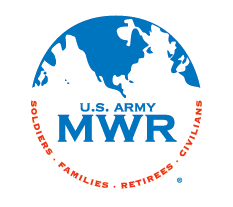Big changes coming to improve PCS process: Pet reimbursements will rise, one company handling all moves
ROCK ISLAND ARSENAL, Ill. – This Permanent Change of Station season is shaping up to be a pivotal moment in the realm of relocations. Additionally, other changes are underway to enhance future moves and the overall experience for military personnel and their families.
One is a revision that gives more money to reimburse pet owners regarding incurred expenses. Another is the Defense Department contracting with one moving company to ensure better service, and now having a distinction for firearms with and without serial numbers that determine if it can be packed or not.
A memorandum dated June 20 and signed by Donna Haddix, chief, Policy and Regulations Division, of the Per Diem, and Transportation Allowance Committee, Department of Defense, the Military Advisory Panel authorizes reimbursement of up to $550 for a “PCS within the continental United States and up $2,000 for a PCS to and from a location outside the continental United States to cover expenses directly related to pet transportation, such as pet shipping and quarantine fees.”
This revision will be published in the Joint Travel Regulations effective Jan. 1, 2024.
According to the revision, a household pet is defined as a dog or cat, owned for personal companionship. Service members are responsible for following the rules for importing and exporting a pet to and from the U.S. to be eligible for reimbursement. Denial of entry could result in a denial of reimbursement.
Only one dog or cat is authorized for reimbursement per move.
Regarding CONUS moves, the revision specifies that reimbursement includes microchipping, boarding fees, hotel service charges for the animal, licensing fees at the new duty station, and pet shipping fees if the member flies instead of driving, or if the pet is transported separately from the member.
As for OCONUS moves, the same applies, but reimbursements are also made for testing of titer levels for entry. A titer is a laboratory test that measures the presence and number of antibodies in blood. A titer may be used to prove immunity to disease. If the test is positive -- above a particular known value -- the pet has immunity.
Additionally, for transoceanic travel, use of government or government-procured transportation must be used if available; otherwise, reimbursement for transportation costs is not authorized.
In an article published by Military Times, the Army Emergency Relief plans to continue its program for assistance to service members for pet transportation costs, which began last year.
The assistance cap from AER is $5,500 regardless of the number of pets, AER spokesman retired Army Col. Sean Ryan said in the article. The assistance from AER is provided via a zero-interest bridge loan or a grant, he said.
As of June, AER has assisted 48 soldiers with $144,000 in assistance. That included 45 zero-interest loans, two grants and one loan-grant combination, Ryan said.
For comprehensive information on moving with pets visit https://www.militaryonesource.mil/moving-pcs/plan-to-move/moving-with-pets/
Only one moving company worldwide
Beginning in September, the DoD will begin Phase 1 of transitioning to a single contracted company for the pickup and delivery of household goods within CONUS. It is planned to be fully operational by next PCS season in 2024, said DeShonda Davis-Locke, Rock Island Arsenal installation transportation officer.
For OCONUS moves, Phase 2 will begin in September 2024 to be fully implemented by PCS peak season in 2025, she said.
The change is expected to bring greater efficiencies and accountability to service members and their families.
The Global Household Goods contract was awarded to HomeSafe Alliance LLC, a company based in Houston, Texas.
“Homesafe is an organization dedicated to providing fast, easy, efficient relocation experiences using cutting-edge technology,” said Courtney Abraham, director of the Army Personal Property Lead Element -- or APPLE -- and U.S. Army Sustainment Command’s Joint Personal Property Shipping Offices-Mid-Atlantic, or JPPSO-MA, Fort Belvoir, Virginia.
“Under the GHC contract, HomeSafe will integrate secure electronic services to improve the domestic and international relocation for military personnel and their families,” said Abraham.
Abraham also said some of the new services include 24-hour personalized customer service, a customized electronic dashboard to track one’s progress in the move process, and a digitized inventory of household items.
“U.S. Transportation Command awarded the GHC to a single move manager to improve access to and management of quality capacity to meet peak demand and enable the department (TRANSCOM) to affix the accountability and responsibility lacking” in former contracts with different companies.
“Understanding the challenges ahead, they are asking moving companies to only accept the shipments they can service,” he said. “In recent years, when companies were overloaded, some service members were left stranded when no one showed up to pack and load their household goods.”
“This is an opportunity to raise the standard for our families, attract quality capacity to the program, and introduce a level of accountability absent today,” stated U.S. Air Force Gen. Jacqueline Van Ovost, commander, U.S. Transportation Command, in a DoD leader overview fact sheet. “Once implemented, this contract will positively impact thousands of service members, Civilian employees and their families each year.”
Changes on firearms policy
Davis-Locke said there also is a change regarding privately owned firearms without serial numbers. The new rules primarily affect firearms considered to be antique.
“Any firearm manufactured after 1968 and without a serial number won’t be packed,” she said. “Those that are made before 1968, but without a serial number, can be packed.”
For those firearms, a Customs and Border Protection Form 4455 Certificate of Registration is required — or a bill of sale, a receipt or other document adequately describing the firearm, such as special markings — on the household goods inventory, Davis-Locke said.
Previously, there was no distinction for shipping firearms without serial numbers, which caused concern about tracking lost or stolen weapons.
In a related change, there are new changes to transporting gun safes. Companies must now either weigh empty gun safes separately, or the use the manufacturer’s weight to meet the Joint Travel Regulations requirement to allow 500 pounds of additional weight in personal property shipments, she said.
Other significant changes
Davis-Locke also offered this:
• Replacement costs: For lost or damaged items, the replacement liability for the company must be based on the local replacement cost or cover any shipping or delivery costs — without passing on membership fees, which may be required to purchase the item —to the service member. In situations where a repair estimate can’t be obtained, the moving company is responsible for full replacement value.
• Damage to electronic items: Items that no longer work when they arrive at the destination will be assumed to be related to the transit unless the problem was documented before leaving the customer’s residence.
• In-transit visibility: Moving companies must provide shipment updates in the Defense Personal Property System, such as when it enters or leaves storage, arrives or departs from a port of embarkation, or there is a delivery date change. This will allow DoD and service members to track and confirm information about their shipment.
• All Army personal property counselors and quality assurance inspectors are now receiving standardized training and guidance through USTRANSCOM and supplemental training from ASC. This enables service members and their families to receive the same high-quality support and accurate information regardless of locality or Transportation Office.
For more information on other PCS-related stories go to these articles:
• Move yourself, make some money too!
https://www.army.mil/article/267619
• New policy restricts PCS shipment, storage of some lithium batteries
https://www.army.mil/article/265831
• Europe’s top transportation official provides sage summer PCS advice
https://www.army.mil/article/265074
For more information on PCSing, go to Military OneSource
https://www.militaryonesource.mil/moving-pcs/ , or call 800-342-9647. And, download the My Army PCS App.
And finally, there is the USTRANSCOM GHC Media Page: https://www.ustranscom.mil/cmd/ghc.cfm



